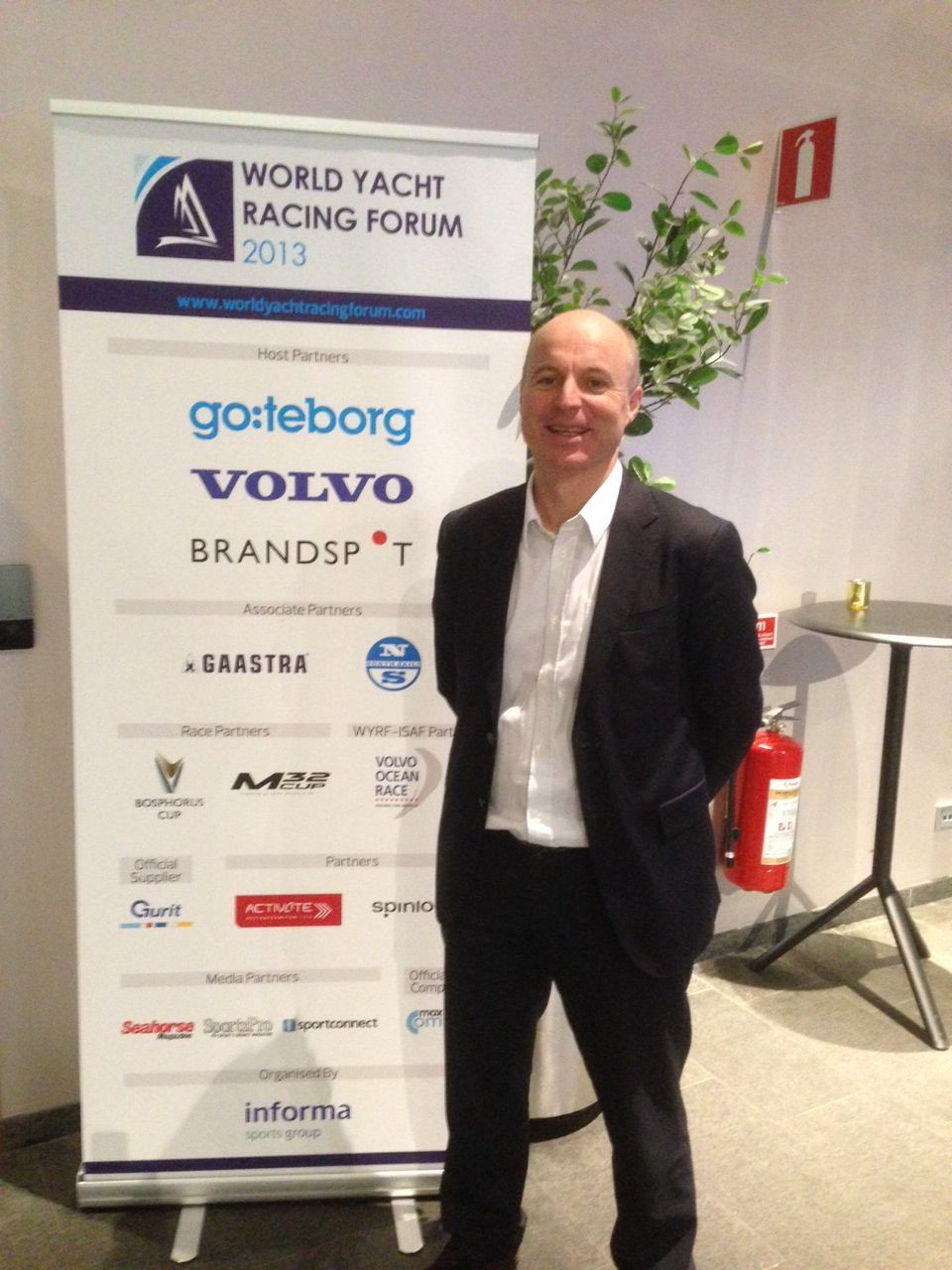«Sailing as we know it is officially over»

The sixth edition of the World Yacht Racing Forum and Yacht Racing Design and Technology Symposium closed its doors on Wednesday night following two intense days of presentations and networking.
An America’s Cup on foiling catamarans, a one-design class for the Volvo Ocean Race and key elements of the traditionally liberal IMOCA Class standardised: those are only some of the radical changes sailing has gone through in 2013, and that have been debated with passion over the last two days by the delegates of the World Yacht Racing Forum in Gothenburg, Sweden.
“Sailing as we know it is officially over”, commented keynote speaker and North Sails Group President Ken Read. Whether people like it or not, the sport is moving fast, in terms of technology but also promotion, communication tools, territories visited, classes... ”Just look at how much sailing has evolved this year and compare it with soccer”, observed Volvo Ocean Race CEO Knut Frostad. “It ‘s simply amazing, although I think the sport should have evolved even faster. Sailing has been much too slow at adapting some of the new technologies available.”
The World Yacht Racing Forum focused on the commercial aspects of the sport, in both offshore or in-port sailing, Olympic classes or the America’s Cup. Talking about Olympic sailing, Olympic Champion and team Artemis CEO Iain Percy insisted on the fact that “the integrity of racing must be preserved despite the increase of commercial needs. It is wrong to put too much emphasis on the final race.” An argument that seems recurrent in the World Yacht Racing Forum, already highlighted vehemently by Sir Ben Ainslie in 2012.
Some of yacht racing’s most involved sponsors attended the event, including Volvo, Stena and Macif. “The key to a successful sponsorship campaign, said the latters’ marketing director Jean-Bernard Le-Boucher, is to get involved on a long term basis, and to compete in many events. The risk-factor remains high, and a long term involvement tends to decrease it. François Gabart, Macif’s skipper and Vendée Globe winner, couldn’t agree more: his sponsor is going to support his next project of building an «Ultime» trimaran, on which he will sail both the Route du Rhum single handedly before attempting a fully crewed round the world record.
Some live surveys conducted amongst the WYRF audience led to interesting conclusions: 80% of the assistance believes that online media is be the best way to reach sailing’s audience, when TV seemed to be the only way to go until recently. According to them, most sponsors (31%) are mainly interested in hospitality programs, compared to visibility on TV (26%) and social media (18%), whilst print is down to 3%...
“The most important element remains to tell a proper, interesting story, no matter on which support”, explained Peter Bayer, CEO of Open Sports Management, the entity in charge of IMOCA’s commercial development. “In order to reach a bigger audience, the sport needs to be entertaining. It’s not about the boats: we need to tell a strong story, and to speak about the people.” Luc Talbourdet, IMOCA’s CEO, fully agrees: “ The key to the success of the Vendée Globe is the story, not the boat nor even the race.”
Teams info
Clarisse Crémer: “I felt all the energy of my team to get me back on the water as soon as possible”
After a week of uncertainty following the discovery of major damage on her boat during The Transat CIC race onboard the IMOCA L'Occitane en Provence, Clarisse Crémer hopes to soon be able to continue her race towards New…
•••Yoann Richomme: Pinching himself after victory in The Transat CIC
Many of the IMOCA skippers in The Transat CIC have been dreaming about completing the race and gliding past the Statue of Liberty after the finish, and earlier today race winner Yoann Richomme did exactly that.
•••